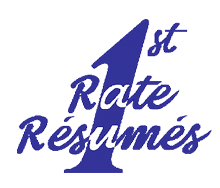I see a lot of resumes. And I can usually tell at a glance which ones were self-written, which ones were written by a professional, and which ones were full of plagiarism. Heck, I’ve recognized my own writing in resumes posted on the Internet, or sent to me to evaluate. How does that happen? Some are copied out of books or off the Internet. Some are photocopied / printed by nefarious HR recruiters who like a resume so much, they make an extra copy for them-self for future use. This happens more than you know.
But the most common way that resumes get plagiarized is when people share their job search documents openly with one another. They email it to colleagues, friends, relatives, or on their website. Why not? The more people who see it, the more likely you’ll get hired, right? Yes, that’s the idea. But here’s the problem. It’s more likely you could become the victim of identity theft. Or just as bad, your resume’s value will quickly deflate. Especially if it’s really well done. People will want to copy it. Many times, word for word.
Sometimes it’s just the formatting that gets copied. However, a pretty looking format can only impress for so long. The writing must be crisp, easy to understand, error-free, and in the right order. Just filling in the blanks to what you think looks good, is the same as taking a tax form and filling in a bunch of numbers without considering the consequences. Once a resume starts getting copied, it quickly becomes a counterfeit. Everyone will have the same looking resume. And when these documents all land on the same recruiter’s desk, you will no longer stand out. Plus the the recruiter thinks you don’t do original work.
Professional Resume Writers create custom documents for their clients who invest a lot of money to further their career. Sharing the resume afterward for others to copy will lower the value of your investment. When you commission a writer for something as important as your career, guard your resume like gold. Don’t share it with just anyone.
